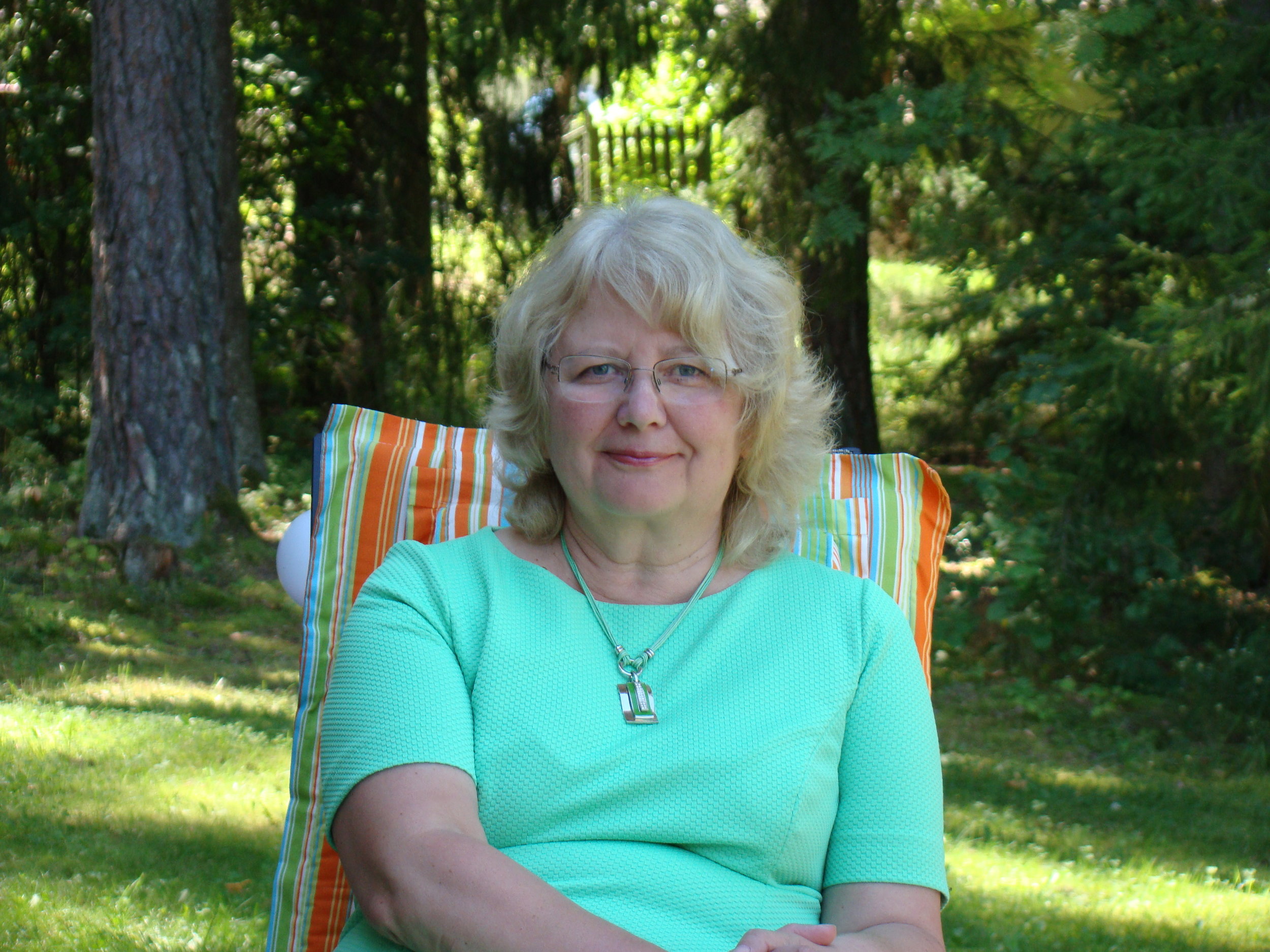INTERVIEW WITH SIRJE AHER
Eesti Looduskaitse Selts, Estonia
City where the organisation is based: Talinn
Number of staff in the organisation/working with Eco-Schools: 7/1
What do you prefer?
- Dogs or cats? Cats
- Sea or mountains? Neither, I prefer forest
- Chocolate or chips? Chocolate
- Film or book? Film
- City or countryside? Countryside
- Favourite word or phrase: If nothing bad has happened yet, there’s no reason to worry. If something bad has happened, there’s no sense worrying about it anymore.
- If you could sing one song in a music competition show on television, what would it be?
I Got The Sun In The Morning - Doris Day
- What is the funniest thing that has happened to you recently?
I recently had a funny lesson in perspectives. My husband and I are biologists. I had an argument with him about whether the object we found in the flowerbed was a half-eaten mouse or the wing of a bird. It turned out we were both right as the skin and wing had been glued together by an owl such that only one was visible from either side.
A high point of the programme, hopes and visions
I believe that the best way to make our society more sustainable is to reach out to children. It was great to see the number of kids reacting positively to the wonderfully creative ways teachers raise their environmental awareness. Most institutions were independent and continued to surprise us when they showcased the activities they had invented. It’s heart-warming to see the sincere enthusiasm with which everybody involved approaches the programme, and I hope that it continues to expand and to involve more people across all age groups. I also hope international cooperation continues to be as fruitful as when Belgium and the UK offered their support (especially via sharing initiatives and materials). I am glad that the parents have also become involved and have more environmental awareness.
Activities by Eesti Looduskaitse Selts
Our activities stem from our desire to support the independent actions of educational institutions that intend to reach our agreed goal, rather than imposing our own ideas. We mostly aim to provide new opportunities and help when it’s needed. This generally takes the form of consultations. When a kindergarten or school approaches us with an idea or a request, we organise a meeting to help overcome the difficulties or provide needed know-how to reach their self-determined goal. We also proactively approach participants ourselves to make sure that no issues have arisen that would hamper the implementation of their ideas. Naturally, many of the raised questions are relevant for several institutions which leads into many forms of experience sharing among participants. Around once a month we also organise various seminars. Some of them are purely informative, such as inviting a lecturer from Tallinn Technical University to speak about the latest developments in the understanding of the environment of the Baltic Sea. Other seminars focus on teaching new methods and some seminars provide a forum for participants to share their experiences with one another. Each of the seminars has been very popular among the participants.
In the spring time Estonia has had “Let’s Do It” clean-ups where schools have actively participated. The Let’s Do It movement has had great success in organising clean-up events in Estonia and has by now also found worldwide success. On September 15, 2018, World Cleanup Day, the movement intends that people in 150 countries will stand up against the global trash problem and clean up waste, making it the biggest positive civic action the world has seen. You can read more about it https://www.letsdoitworld.org/about/overview/
An inspiring story by Eesti Looduskaitse Selts
I never cease to be amazed by the insight and creativity of our participants. For example the following idea is a very simple solution but can have a very high impact. Estonian kindergartens and schools provide hot meals to all their pupils in the belief that a balanced and healthy meal will allow pupils to learn and develop to the best of their ability. Because the children are used to this and they can be picky, a lot of it is left on the plate and goes to waste. They do not think about it and if this habit persists then they may also end up throwing away a lot of food once they have grown up.
Tuule kindergarten found a very simple solution to counteract this: they asked all 5-7year old children to serve their own meals – reminding them to take exactly as much as they wish to eat. They can always take more, but they have to eat the food they have put on their plates. Through this hands-on experience, children immediately relate to the seemingly complex issue of food and resource management. Furthermore, the solution empowers children and helps them develop as individuals. Some schools already use a buffet type serving method, but it's important to teach children about the environmental impact of their actions at the youngest possible age.


